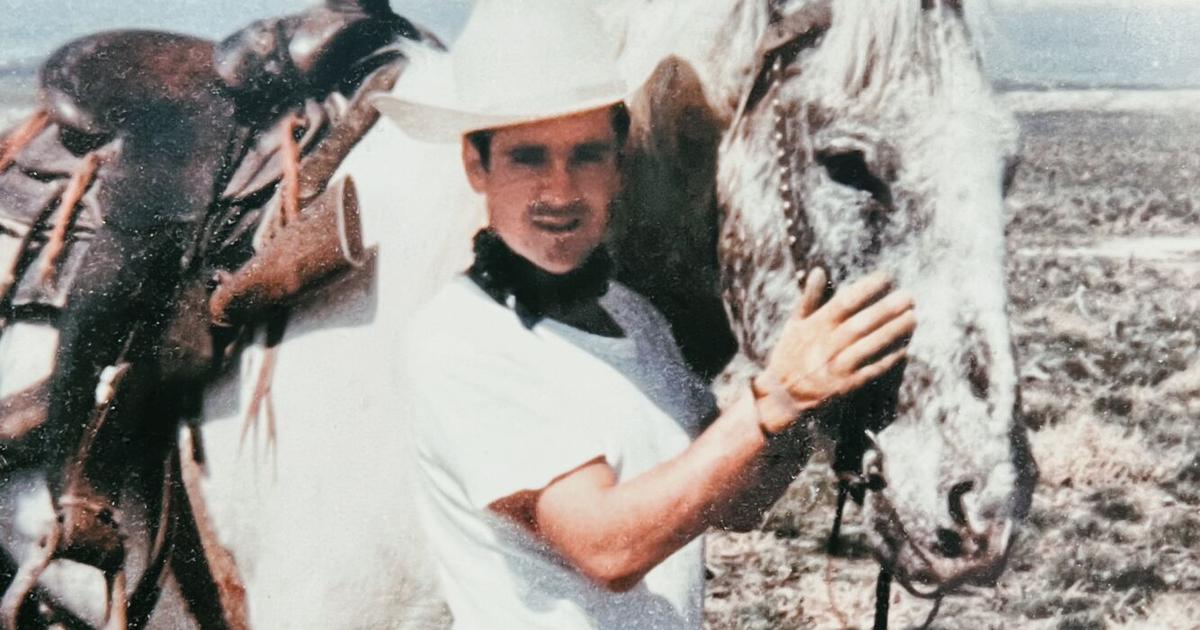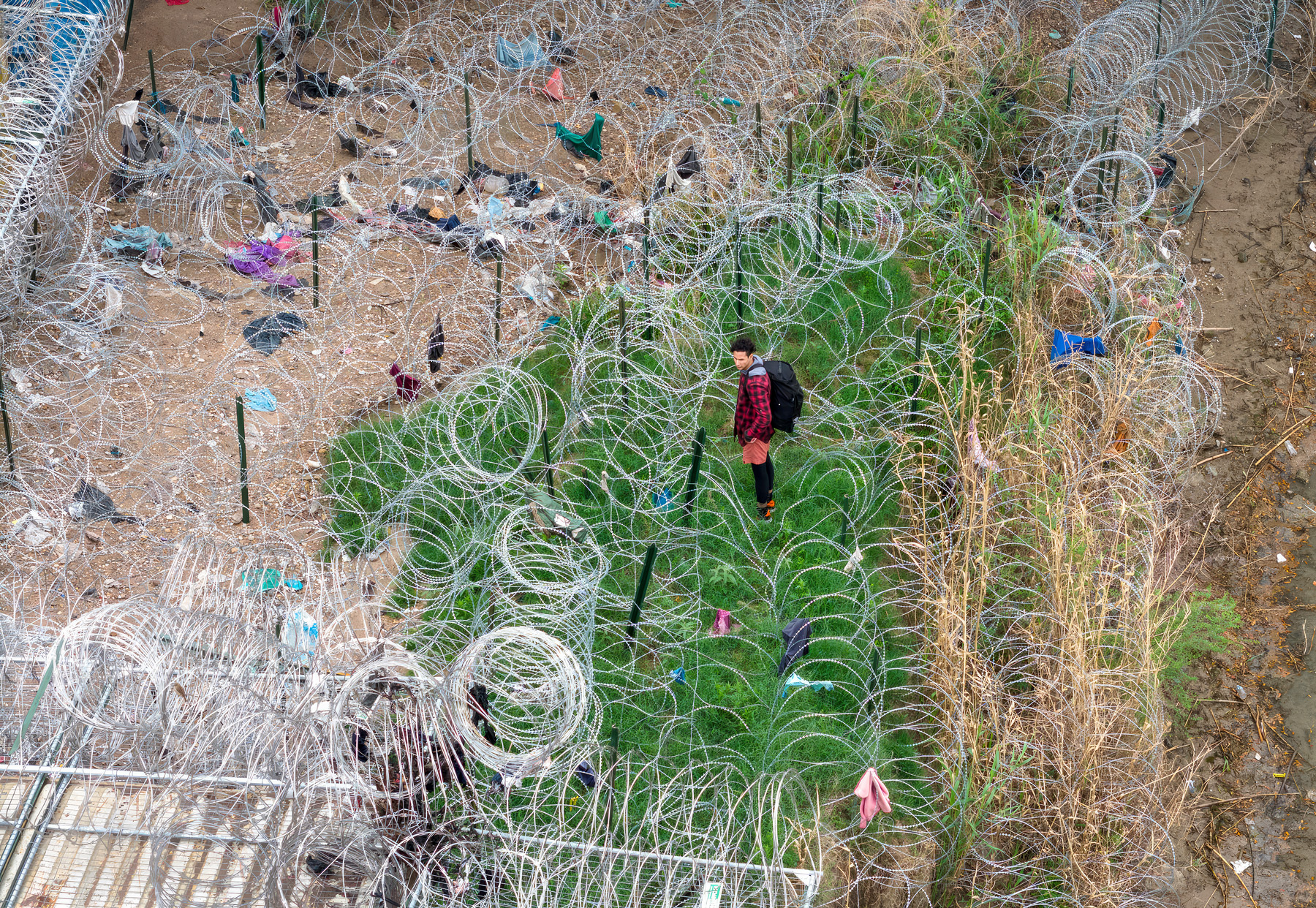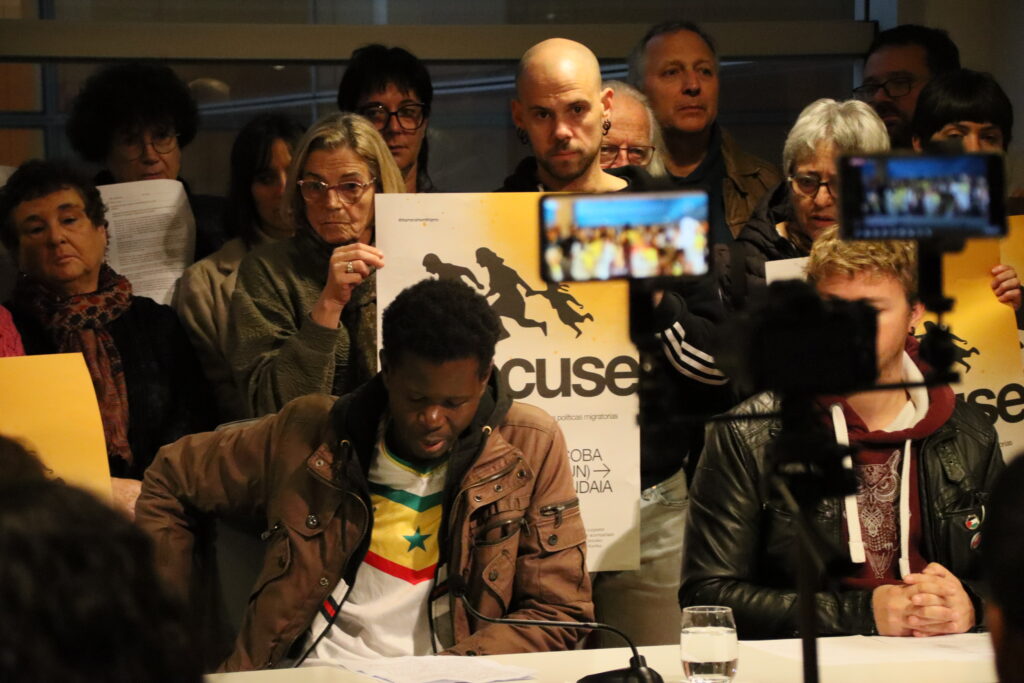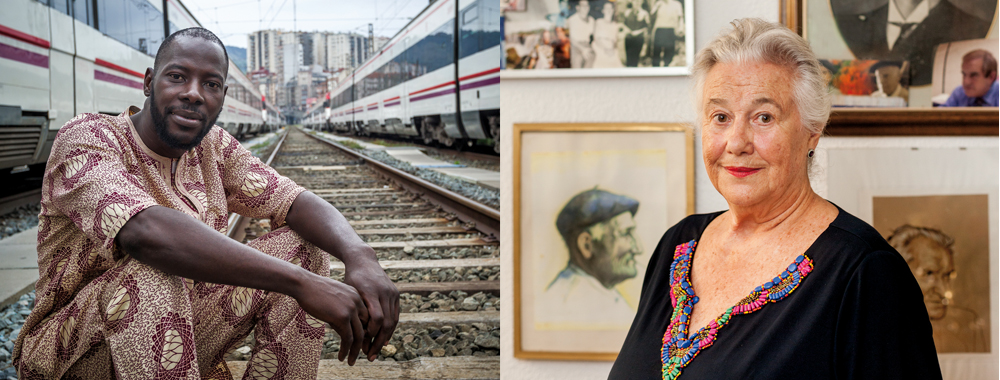
“On the escape journey, I was about to lose my son at many times. At night I could not sleep, at dawn I screamed, I had nightmares, I dreamed that they killed me, that they burned me, that I was in the river and that the water took my son” (to Ashti Xan, in Kurdistan; we have changed the name for security); “I will never forget the day I left, I only had my mother and my daughter in the head, if I would ever return. But I also thought about helping my daughter not to suffer what I had suffered as a child and was willing to do anything that would improve her life” (Hady Traoré, Mali); “my parents took the journey into exile against her will. The father left behind the family home, three or four generations, a very old mother, her hometown, the Basque. He carried everything with him, and at the same time he left everything” (Arantzazu Amezaga, born in exile). The members of the CEAR-Euskadi have collected numerous testimonies in which they have sought to gather and make visible the cruellest experiences of the migratory processes. “Exile is a tremendous emotional shock for anyone; you suddenly have to escape one day to the unknown,” says project coordinator Beatriz de Lucas.
Sadness, division, nostalgia, terror, tiredness, violence, disorientation, guilt, mistrust, hope for a better future… are the feelings and experiences reproduced by refugees, exiled and migrants from different times. “I came to a totally different society; I didn’t know the language, I didn’t know anyone,” says Xani. What has been found in goal is also not what has been dreamed of previously, and cultural and socio-linguistic conflicts, the lack of knowledge of the new society, the obstacles to work and progress are usually great… “I was never a child or a teenager. It touched me to be older from a young age, because if you don’t get lost in exile” (Arantzazu Amezaga); “my parents always thought they would come back and never fully integrated. We were also affected by all that, not here or there” (Maitena Jauregi, Euskal Herria); “Sometimes I feel very lonely, in some areas they still look at me as if I were alien. And there we start, even if we don’t want, to create ghettos, because it is difficult to teach people that in what is happening there is a great burden of suffering” (Rosario Vásquez, Colombia).
Rosario Vásquez, refugee: “Here I have had the opportunity to be neither mother, nor sister, nor daughter of anyone. That doesn’t mean I don’t like mine, it’s also hard to assimilate it.”
“I have never regretted it”
There are many social stigmas and prejudices that have been discriminated against and undervalued. “You have to be testing who you are all the time, what your experience is, what you can contribute. I try to understand it, I think it has to do with the education you've been given as a member of the First World, with that imaginary colonizer. It’s been hard for me to find truly horizontal relationships, people think they have to teach me many things, without listening to me” (Rosario Vásquez). Being a migrant and being a woman often have a double burden. “We are welcomed only for housework or care, and many times you feel that you are working for people with less intellectual capacity than you, but that looks at you for being outside as if you had fewer studies. We don't want to just be seen as vigilant, but to open more doors. For the rest, our daughters say: Why study and make a career, if in the end we are caregivers?” (Fatma Galia, Sahara). Counterpoint that the journey has served to be freer as a woman than in the country of origin: “Here I have had the opportunity to be neither mother nor sister nor daughter of anyone; in the mornings I get up only for myself. And normally women don't have this opportunity in life, we have to act based on the roles that they impose on us. That's been the biggest benefit, and it's strange, because I wasn't looking for it or asking for it. That doesn’t mean that I don’t like mine, it’s also difficult to assimilate it” (Rosario Vásquez).
Beatriz de Lucas, CEAR-Euskadi: “In all the interviewees we perceive hope, hope to improve their lives, hope to return home and meet the people they love.”
It's not all pain and grief in the new home. “I have never regretted, I left my homeland because there I had no future. In Mali I have no future and here I know I can keep fighting” (Hady Traoré). In order to move forward, the interviewees have highlighted many keys: spirituality, the meeting points that help them maintain their original identity (the exiles of 1937 often cite the Basque Country), the efforts to integrate into the new society (for example, language), family members who continue to be protected despite being away, organized networks… “The feminist association has embraced me at all times, it has followed my life. I've been given resources to grow staff, stability. I build with them the idea that another world is possible, I build life, the struggle” (Amparo Pimiento, Colombia).
To better adapt to the new context and facilitate coexistence, migrants consider it necessary to make known and understand the situation of the countries of origin in society, obtain social recognition, acquire legal recognition of refugee status through a rapid and transparent process and, once and for all, channel the appropriate migration policies.
“We have learned nothing”
Beatriz de Lucas makes it clear that: “We have learned nothing from the experience of those who fled here years ago. Moreover, it seems that we have forgotten that experience that we have lived as a people, and instead of learning from it and seeing what helped us to live better abroad, we are also doing the opposite in order to be able to more humanely welcome those fleeing similar violence. We are receiving very few people and badly. I am not referring to society, but beyond the solidarity of the people, the institutions do not comply with international standards and society has to understand that it is not a matter of charity, but of justice and rights. People who flee and seek asylum have the right to do so.”
However, questioned as to whether there has been more hope or despair among the interviewees, De Lucas wanted to stress the hope: “Not only are they victims of an unfair situation, they are also capable of dealing with this painful situation. And in all the people interviewed, exiled and refugees, we have perceived the hope, the hope of improving their lives, changing the situation of the countries of origin, coming home and meeting with the people they love.”
We Basques move our feet behind the witness of Korrika to proclaim that we want to survive as a Basque people in favor of our language, with the aim of the Basque Country we desire.
The tipi-tapa is the first step taken by a migrant person who leaves his homeland in Africa,... [+]
The poor management of the Valencian cold drop has led to a change in adverse meteorological alerts, as shown in the first season of "winter". Faced with the threat of rivers overflowing in Hego Euskal Herria, the indications for protection came along several paths, since no... [+]









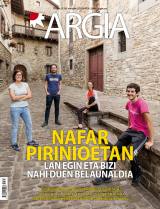



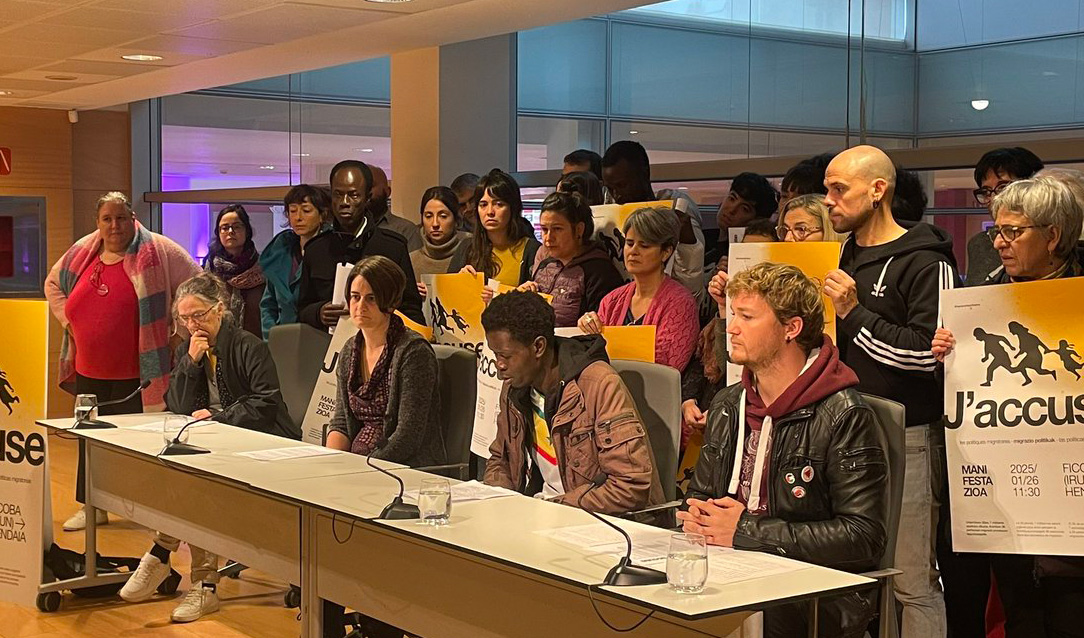

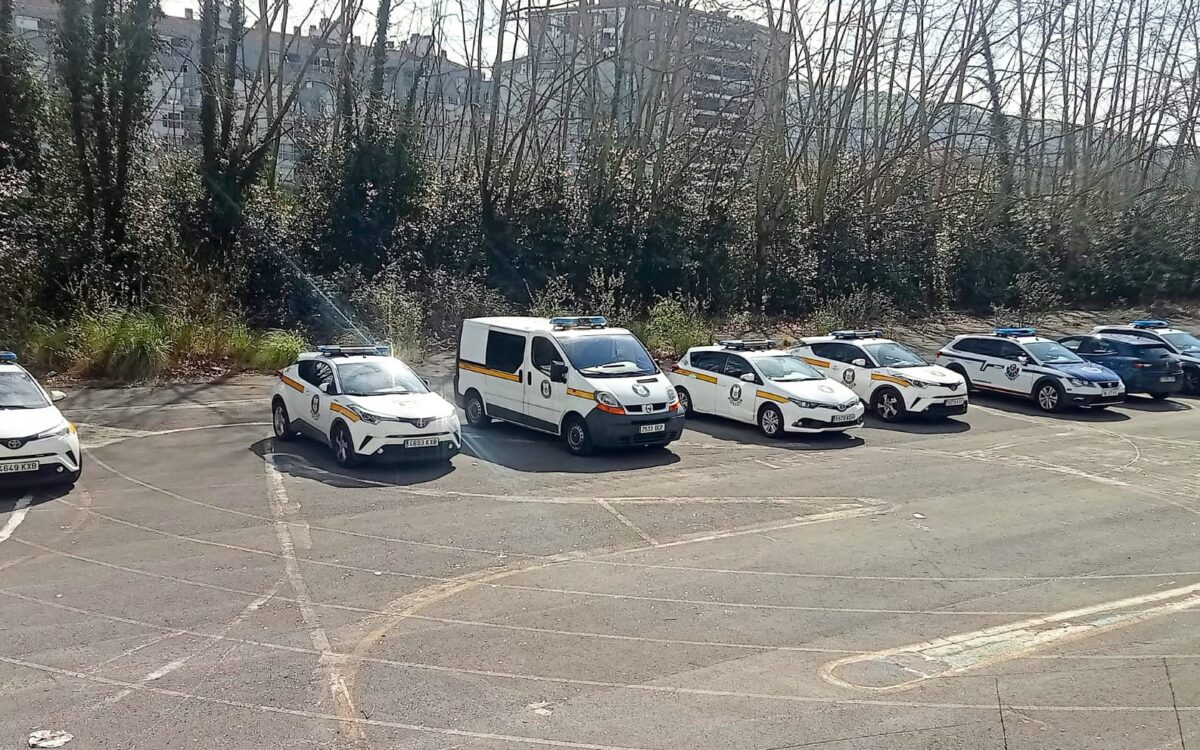
-(1).jpg)
.jpg)


